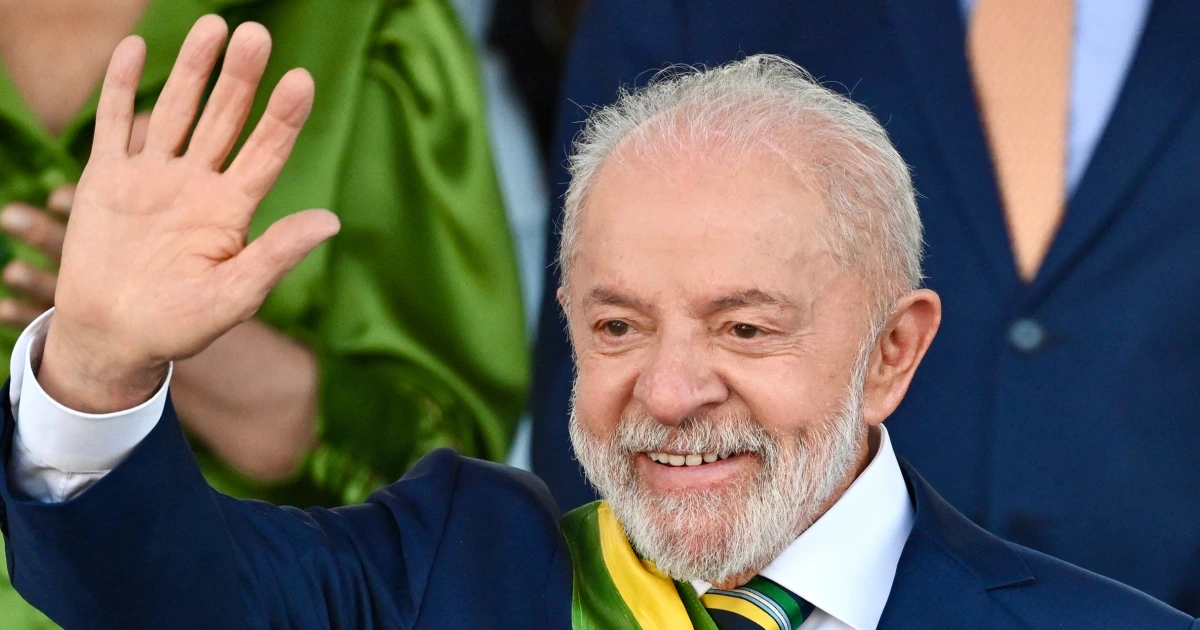
Last month I wrote that climate activists were trudging through the famous five stages of grief. They had passed through denial, anger, bargaining, and were wallowing in depression, but true acceptance still eluded them. Acceptance would mean recognizing that the so‑called “climate crisis” was never a physical reality but a political construct, that voters had rejected costly schemes, and that models could not substitute for reality. At the time, I noted they weren’t there yet.
Then along comes the New York Times with a long lament titled “It Isn’t Just the U.S. The Whole World Has Soured on Climate Politics.” For once, the tone is less fire‑and‑brimstone and more sighing resignation. Read carefully, and the whole essay reads like an unintentional admission that the Paris Agreement era is over. Not just faltering, not just delayed—over. In other words, it looks very much like acceptance.
Consider how the piece begins:
“Ten years ago this fall, scientists and diplomats from 195 countries gathered in Le Bourget, just north of Paris, and hammered out a plan to save the world. They called it, blandly, the Paris Agreement, but it was obviously a climate-politics landmark: a nearly universal global pledge to stave off catastrophic temperature rise and secure a more livable future for all. Barack Obama, applauding the agreement as president, declared that Paris represented ‘the best chance we have to save the one planet we’ve got.’”
https://www.nytimes.com/2025/09/16/magazine/climate-politics-us-world-paris-agreement.html
The rhetorical high ground was claimed early: Paris was not a negotiation over policy, but a plan to “save the world.” The problem is that reality rarely cooperates with slogans. A decade later, the Times acknowledges that almost none of those promises were kept, nor were voters willing to sacrifice for them.
“At last year’s U.N. Climate Change Conference (COP29), the president of the host country, Azerbaijan’s Ilham Aliyev, praised oil and gas as ‘gifts from God,’ and though the annual conferences since Paris were often high-profile, star-studded affairs, this time there were few world leaders to be found. Joseph R. Biden, then still president, didn’t show. Neither did Vice President Kamala Harris or President Xi Jinping of China or President Ursula von der Leyen of the European Commission. Neither did President Emmanuel Macron of France … In the run-up to the conference, an official U.N. report declared that no climate progress at all had been made over the previous year.”
So much for the “indispensable” gatherings of the great and the good. When even the hosts are lauding fossil fuels as divine blessings, the façade is gone. What we see here is not renewed urgency, but leaders quietly disengaging from an agenda they know the public won’t support.
“This year’s conference, which takes place in Brazil this November, is meant to be more significant: COP30 marks 10 years since Paris, and all 195 parties … are supposed to arrive with updated decarbonization plans. But when one formal deadline passed this past February, only 15 countries—just 8 percent—had completed the assignment. Months later, more plans have trickled in, but arguably only one is actually compatible with the goals of the Paris Agreement … and more than half of them represent backsliding.”
Deadlines ignored, pledges watered down, and “backsliding” the norm. Imagine if this were any other international agreement—say, nuclear arms control—where 92 percent of signatories failed to meet the paperwork requirements. Would anyone treat it as binding? Yet the Paris Agreement is still invoked as if it carries weight. The Times itself can no longer disguise the truth: it doesn’t.
“To our north, the former central banker Mark Carney … became prime minister of Canada in March and as his very first act in office struck down the country’s carbon tax, before storming to a landslide victory in the April election. To our south, President Claudia Sheinbaum of Mexico, a former climate scientist, has invoked the principle of ‘energy sovereignty’ and boasted of booming oil and gas production in her country—and enjoys one of the highest approval ratings of any elected leader anywhere in the world.”
Here is democracy in action. Voters, given the choice, opt for cheaper energy and national sovereignty over international pledges. This is not the “complacency” the Times laments—it is the public will. When politicians who embrace oil and gas win landslides while carbon taxes are political suicide, the verdict is clear.
“You can’t walk more than two feet at any global conference today without ‘pragmatism’ and ‘realism’ being thrown around as the order of the day … this whole climate thing is just too hard.”
So said Jason Bordoff, a former Obama adviser. In other words, the movement has run headlong into the limits of political reality. What activists once dressed up as a “moral obligation” has been reduced to technocratic jargon: pragmatism, realism, difficulty. Translation: it’s over.
The Times even admits what climate skeptics have pointed out for decades:
“Polls show that voters don’t actually prioritize decarbonization and, crucially, aren’t willing to pay much to bring it about.”
This single sentence demolishes years of rhetoric about the “overwhelming public demand” for climate action. Support evaporates the moment costs are introduced. Politicians understand this; activists have resisted admitting it. Now even the Times is forced to acknowledge it outright.
And so the mood has shifted from revolution to resignation:
“Progressives long believed that climate politics was a kind of tug of war, in which tugging harder would pull many on the other side over the line into grudging support … But it also looks a bit as if they pulled so hard they collapsed in disarray.”
Precisely. The harder the push for Net Zero, the greater the recoil. What was meant to be a virtuous flywheel of momentum has instead spun itself apart.
Even Christiana Figueres, the architect of Paris, is now trying to rebrand failure as evolution:
“It’s not about climate politics anymore. It’s about climate economy.”
Which is to say: the age of treaties, summits, and sweeping global pledges is over. If emissions decline at all, it will be because markets and consumers find renewable energy useful—not because politicians demand sacrifice.
The Times does not abandon its habit of sprinkling alarmist adjectives. Phrases like “terrifying pace” and “jagged future” appear, as if to reassure readers that fear is still justified. Yet the tone has changed. Gone are the “last chance saloons” and “final warnings.” In their place is a weary recognition that the grand project of Paris has collapsed under its own weight.
In short, the movement has reached the fifth stage of grief. Acceptance. Not acceptance that the planet is doomed, but acceptance that climate politics as conceived in Paris is finished. The NYT admits as much without ever saying the word. The great cause has become a ghost: summits no longer attended, pledges no longer met, publics no longer convinced.
Last month, I argued that climate activists had not yet arrived at acceptance. Now, with this article, even their most faithful media allies are penning elegies. Paris was supposed to usher in a new moral order. Instead, it delivered a decade of empty promises, costly failures, and political backlash. That is the story the Times has, at last, begun to tell.
The grief is theirs. The relief is ours.



